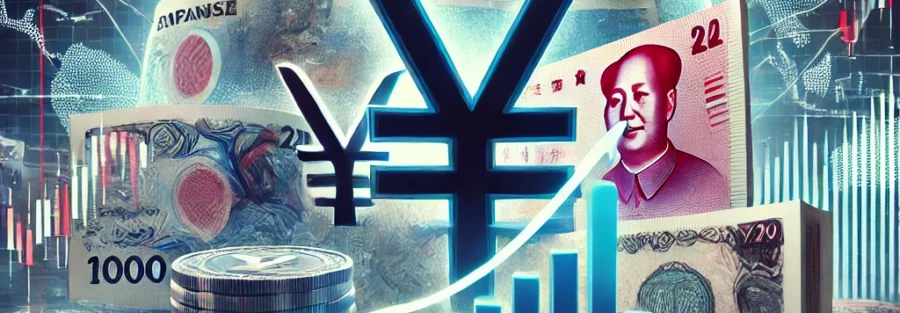Most Asian currencies edged higher on Wednesday as the dollar softened ahead of a key U.S. inflation report, while attention turned to China’s annual economic policy meeting for potential new stimulus measures from the world’s second-largest economy.
Investors remained cautious ahead of the U.S. Consumer Price Index (CPI) data, due later in the day, which is expected to influence the Federal Reserve’s interest rate outlook. Uncertainty over the long-term direction of rates has bolstered the dollar recently, applying pressure on Asian currencies in prior weeks.
The dollar index slipped 0.1%, with dollar index futures also trending lower during Wednesday’s Asian trading session.
Chinese yuan gains amid CEWC focus
The offshore USD/CNH pair for the Chinese yuan declined 0.2% on Wednesday, while the onshore USD/CNY pair remained relatively steady. Both pairs had weakened in the previous session after China’s Politburo issued its most dovish signals yet, hinting at further stimulus and growth support measures.
Markets are now focused on China’s Central Economic Work Conference (CEWC), a two-day meeting starting later on Wednesday. The CEWC is expected to provide critical insights into how China plans to tackle domestic challenges such as slowing economic growth and weak consumption, as well as external pressures like trade tensions.
This annual meeting is not only significant for China but also for the wider Asia region, given China’s role as a key trading partner and its influence on regional economic performance.
Elsewhere, the Singapore dollar’s USD/SGD pair inched up 0.1%, while the Indian rupee’s USD/INR pair saw a slight dip.The Australian dollar’s AUD/USD pair edged slightly higher after a sharp decline on Tuesday, following the country’s central bank’s decision to keep interest rates unchanged and adopt a somewhat dovish tone.
South Korea’s USD/KRW pair fell 0.1%, reversing gains from the previous four sessions amid a continuing political crisis. President Yoon Suk Yeol is under criminal investigation for insurrection after his controversial martial law declaration earlier this month. On Wednesday, South Korean police raided the president’s office as part of the investigation.
Japanese yen strengthens amid BOJ rate hike speculation
The Japanese yen’s USD/JPY pair declined 0.4% on Wednesday, after data revealed that Japan’s wholesale inflation rose for the third consecutive month in November, driven by higher labor and raw material costs for businesses.
This data reinforced growing pressure on the Bank of Japan to consider another interest rate hike in response to persistent inflation.
Markets remain divided on whether the BOJ will raise rates further ahead of its two-day policy meeting ending on December 19. The central bank raised rates twice this year in response to rising inflation and wages, although recent momentum in these areas has slowed.





